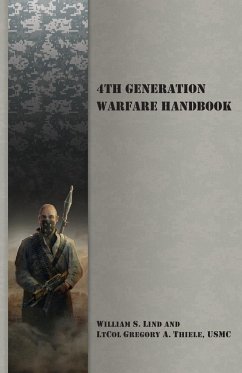
Asymmetric Warfare
The Peoples' Guide
Versandkostenfrei!
Versandfertig in 1-2 Wochen
16,99 €
inkl. MwSt.

PAYBACK Punkte
8 °P sammeln!
In Asymmetric Warfare: The People's Guide, former Rhodesian Special Branch officer John Padbury draws on hard-earned, on-the-ground experience to deliver an unflinching examination of modern irregular warfare. This isn't theory - it's a practical, field-tested manual revealing the real-world strategies and tactics used by both revolutionaries and counter-revolutionaries that lead to political and territorial occupation. Written in response to growing demand from military professionals, scholars, and engaged readers, this book presents a clear and accessible roadmap for understanding how civil ...
In Asymmetric Warfare: The People's Guide, former Rhodesian Special Branch officer John Padbury draws on hard-earned, on-the-ground experience to deliver an unflinching examination of modern irregular warfare. This isn't theory - it's a practical, field-tested manual revealing the real-world strategies and tactics used by both revolutionaries and counter-revolutionaries that lead to political and territorial occupation. Written in response to growing demand from military professionals, scholars, and engaged readers, this book presents a clear and accessible roadmap for understanding how civil wars ignite - and how they are fought, won, or lost. In an era marked by failing states, corrupt leadership, and rising internal unrest, Padbury warns: every nation must be prepared for civil conflict. Drawing on successful counterinsurgency campaigns, Padbury underscores the need for a unified Political and Military Strategic Aim - one grounded in the grievances, needs, and aspirations (GNA) of the people, and implemented progressively. He critiques the reliance on brute force alone, asserting that kills, censorship, repressive laws and imprisonments do not defeat insurgencies. As he writes: "The people hold the power - and whoever secures their will, wins." Padbury reveals how insurgents dismantle regimes through protracted political, social, economic, and guerrilla tactics- and how governments must respond not just with force, but through narrative control, strategic foresight, and grassroots engagement. His conclusion is stark: military power alone is never enough. This is essential reading for military personnel, intelligence officers, political scientists, and strategic analysts - and for anyone who read Battle for Hurungwe or wants to understand the internal wars reshaping today's world.














